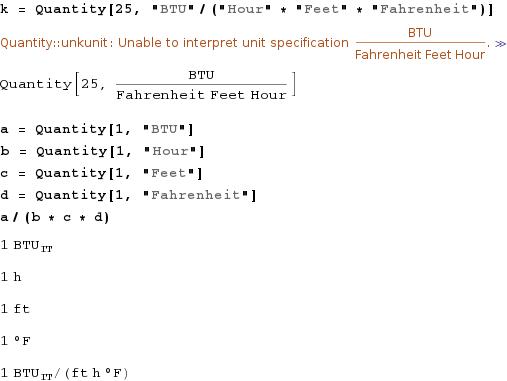I'm using Mathematica 9.0.1. Sorry for using an image, but pasting code messed up the output formatting.
I'd like to represent 25 Btu/(hr ft F).

All units are spelled correctly as identified in the second attempt... not sure what is going wrong in the first attempt?
I've also tried:
"DegreesFahrenheit",
"DegreesFahrenheitDifference", and
"BritishThermalUnitsIT".
No luck. I've seen other posts where people used the Wolfram Alpha capabilities to "interpret" which units were used... I hope I don't need internet connectivity for this simple task?


Quantity[25,"BritishThermalUnitsIT"/("Hours"*"Feet"*"DegreesFahrenheitDifference")]$\endgroup$